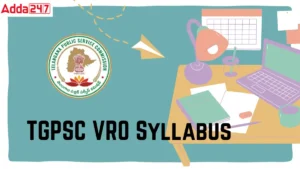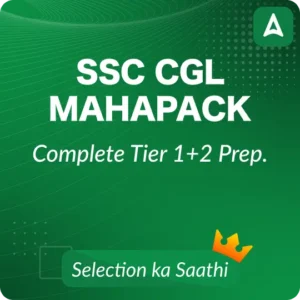The UKPSC Lower PCS Mains 2025 is the most crucial stage in the recruitment process conducted by the Uttarakhand Public Service Commission. While the Prelims Exam is objective in nature and mainly tests quick problem-solving ability, the Mains Exam is descriptive. It requires candidates to demonstrate not only knowledge but also the ability to analyze, structure, and present ideas effectively.
Performance in the Mains exam carries significant weight because it directly determines eligibility for the Personality Test (Interview) and eventually shapes the final merit list. Hence, thorough preparation, disciplined practice, and strong answer-writing skills are essential to succeed.
UKPSC Lower PCS Syllabus
A clear understanding of the exam pattern is the first step towards smart preparation. Written Examination
The UKPSC Lower PCS Mains comprises two descriptive papers only:
- Paper I – General Studies: 200 marks, 3 hours
- Paper II – Essay & Drafting: 200 marks, 3 hours
Thus, the total marks for the Mains exam are 400.
To qualify, candidates must score at least 35% in the Essay & Drafting paper.
Since the Mains stage is the gateway to the interview, your performance here plays a decisive role in your overall selection.
UKPSC Lower PCS Mains Admit Card 2025 – Out
UKPSC Lower PCS Answer Key 2025 – Download Link
UKPSC Lower PCS Prelims Syllabus
The UKPSC Lower PCS Syllabus includes General Studies. Candidates preparing for the exam can now check the preliminary exam syllabus from the article below.
| UKPSC Lower PCS Prelims Syllabus | |
| Subject | Topics |
| General Science and Knowledge of Computer Operation |
General understanding and application of science and computers, including day-to-day observations and experiences.
|
| History of India and Indian National Movement |
Ancient, medieval, and modern India’s political, social, economic, and cultural aspects; India’s Freedom Movement, growth of nationalism, and attainment of Independence.
|
| Indian Polity and Economy |
Indian polity, Constitution, Panchayati Raj, Community development, and broad features of Indian economy and planning.
|
| Geography and Demography of India |
Broad understanding of geographical, ecological, and socio-economic aspects and demography of India.
|
| Current Events |
Important Uttarakhand State, National, and International current events, including games.
|
| History of Uttarakhand |
Historical background (ancient, medieval, and British rule), Gorkha administration, Tehri State, role in the Freedom Movement, eminent personalities, historical sites, and movements for state formation.
|
| Culture of Uttarakhand |
Castes and tribes, religious and folk beliefs, literature, traditions, costumes, fairs, festivals, food habits, art and crafts, dances, songs, major tourist places, sports, and famous authors and poets.
|
| Geography and Demography of Uttarakhand |
Geographical setup, features of Uttarakhand Himalaya, rivers, climate, forest resources, agriculture, disaster management, population classification, density, sex ratio, and migration.
|
| Economic, Political, and Administrative Background of Uttarakhand |
Elected governments and policies, political and administrative systems, Panchayati raj, historical land management systems, revenue police, Indo-Tibetan trade, local agriculture, animal husbandry, and economic resources.
|
UKPSC Lower PCS Mains Syllabus
The UKPSC Lower PCS Mains 2025 is not merely a test of knowledge—it is a test of clarity, analytical ability, and communication skills. Since it is descriptive in nature, candidates need to practice structured writing, essay composition, and drafting with discipline.
By preparing systematically, focusing equally on General Studies and Uttarakhand-specific topics, and practicing mock tests and interviews, aspirants can maximize their chances of cracking the exam.
With consistency, determination, and the right strategy, success in the UKPSC Lower PCS 2025 is within reach.
| UKPSC Lower PCS Mains Syllabus | |
| Subject | Topics |
| Language (General Hindi) |
– Alphabet and Words: Letters, Vowel signs, Gender, Number, Suffix, Prefix, Parts of Speech (Noun, Pronoun, Adjective, Verb, etc.)
– Word Formation and Meaning: Synonyms, Antonyms, Homonyms, One-word substitutes, Sentences for word use, Direct, Indirect, Foreign words, Compound and Derived words – Sentence Formation – Unseen Passage – Summary Writing and Explanation – Letter Writing: Official, Semi-official, Informal, Orders, Office circular, Reports, or translation. – Translation: English to Hindi/Hindi to English |
| Essay |
Section A
– Literature and Culture – Social, Political and Economic topics – National/International related topics – Policies related to National development, Science and Technology – Environmental and Natural Disaster (Landslide, Flood, Drought, Earthquakes, etc.) Section B – Historical, Artistic and Cultural Scenario of Uttarakhand – Social and Cultural Structure of Uttarakhand – Environmental Protection and Disaster Management in Uttarakhand – Role of Women in Economy and Polity of Uttarakhand and Women Empowerment – Economic and Geographical Scenario of Uttarakhand and its Tourism. Migration problem of Uttarakhand |
| General Studies – First Paper |
– History, Art, Culture and Society of India: Various art forms, Literature, Painting, Music, Bhakti Movement/Sufism, Social-religious movements, Indian architecture, Ancient & Medieval Indian history, Freedom movement, Partition, Post-Independence challenges
– History, Arts, Culture and Society of Uttarakhand: Prehistoric & Proto-historic background, Tribals & Communities, Dynasties & Administration, Colonial impact, Mass movements, Gandhian impact, Local traditions – Indian Constitution, Political System & Administration: Constitution History, Features, Rights & Duties, Executive & Legislature (Union/State), Judiciary, Elections & parties, Panchayati Raj, Administrative reforms, National integration & challenges – Political & Administrative System of Uttarakhand: Structure, Assembly, Judiciary, Parties, Local self-government, Current issues, Social schemes, National schemes, Social inclusion measures |
| General Studies – Second Paper |
– Indian Economy: Features, National income, Sectoral composition, Human Development Index, Economic planning, Poverty, Inequality, Inflation, Agriculture & Rural development, Industry, Taxation, GST, Fiscal policy, Black economy, Foreign trade, Reforms, RBI policy, Demographics, Migration, Urbanization, Infrastructure
– Economy of Uttarakhand: GDP, Resources, Demography, Forest, Energy, Agriculture, Water, Minerals, Industry, Transport, Public finance, Education, Poverty, Health, Social welfare, Migration, Women empowerment, Major crops, Land reforms, Farmer welfare, Panchayati Raj, Banking, Tourism & Pilgrimage |
| Geography of India & Demography |
– Physical features, Geological system, Relief/Drainage, Climate phenomena (El-Nino, La-Nina etc.), Soils, Forest, Biodiversity hotspots, Environmental/ecological problems, International boundaries & geopolitical issues, Agriculture, Mines & minerals, Energy, Industry, Transport, Civil aviation & water transport, Regional disparities, Hazards & disasters, Population distribution, Migration
|
| Geography of Uttarakhand, Demography & Disaster Management |
– Geographical setup, Himalaya origin, Physiographic divisions, Major rivers & mountains, Climate, Forest resources, Horticulture, Major crops/diversity, Irrigation, Agricultural holdings, Natural/man-made calamities, Disaster management, Water crisis/watershed, Remote area problems, Environmental movements (Chipko, statehood), Biodiversity, Population diversity, Migration
|
| Science, Technology & Environment |
– General Science, Technology, Environment: General understanding and application, Environmental issues (Air, Water, Pollution), Greenhouse effect & global warming, Ozone depletion, Forest degradation, Biotechnology principles, Nutrition, Animal/bird/plant diseases, Polymers & solutions, Environmental chemistry, Soil pollution, Life origin & evolution, Green chemistry, Genetic disorder, Physics fundamentals (Force, Energy, Light, Electricity, Magnetism, Nuclear), Computers, IT, Cyber security, E-governance
|
| Human Values, Work Culture & Civil Service Aptitude |
– Nature/Types/Characteristics of Human values, Role of family/society/education, Work Culture—concept, approaches, effective administration, Attitude, Aptitude & roles, Emotional Intelligence, Public/Civil service values & ethics, Government/private institution dilemmas, Probity, Information sharing/transparency, Contributions of Indian moral thinkers/philosophers (Gandhi, Ambedkar, Vivekananda, Tagore, Kalam), Case studies
|
| Statistical Analysis, Graphs & Diagram |
– Measures of Central Tendency, Measures of Dispersion, Data Analysis through Graphs and Diagrams, Application concepts
|
| Current Events |
– International, National, Asia, India, Uttarakhand related current affairs; games and sports
|
UKPSC Lower PCS Exam Pattern
The selection process includes prelims and mains exams. Candidates preparing for the exam should be aware of the detailed exam pattern and plan their study schedule.
UKPSC Lower PCS Prelims Exam Pattern
Candidates who applied should appear for the prelims exam. The preliminary exam is of a qualifying nature only. The candidates who clear the preliminary exam will be called for the mains examination.
| UKPSC Lower PCS Prelims Exam Pattern | |||
| Subjects | Questions | Marks | Duration |
| General Study & General Aptitude Test | 150 | 150 | 02 hours |
Note: Marks obtained in the Preliminary Examination shall not be added to the marks obtained in the Main written Examination for determining the merit.
UKPSC Lower PCS Mains Exam Pattern
The candidates who cleared the prelims will be called for the mains examination. The UKPSC Lower PCS Mains Exam is of a descriptive type. Candidates should score more than the minimum qualifying marks in Hindi to be considered for final selection. The merit list will be drawn based on the overall marks scored in the written exam.
| UKPSC Lower PCS Mains Exam Pattern | ||||
| Paper | Subjects | Questions | Marks | Duration |
| I | Language (General Hindi) | 06 | 100 | 02 hours |
| II | Essay | 02 | 100 | 02 hours |
| III | General Studies: First Paper | 20 | 200 | 03 hours |
| IV | General Studies Second Paper | 20 | 200 | 03 hours |
Note : It is essential to obtain minimum 35% marks in Language (General Hindi).
Preparation Strategy for UKPSC Lower PCS Mains
The Mains stage is descriptive in nature, which means success depends not only on what you know but also on how effectively you can present it. A balanced strategy is therefore essential. Here are some key guidelines aspirants should follow:
- Build Conceptual Clarity – Instead of memorizing facts, focus on understanding concepts thoroughly. This helps in writing analytical and well-structured answers.
- Practice Answer Writing – Since the exam is descriptive, writing practice is the most important part of preparation. Set a timer and regularly write answers to improve speed, coherence, and presentation.
- Work on Language & Expression – Clear, simple, and precise language makes a strong impression. Avoid complicated phrases and focus on presenting ideas in an organized manner.
- Develop Time Management Skills – During the exam, each paper has limited time. Practicing within a strict timeframe ensures you can attempt all questions with proper balance.
- Revision is the Key – Multiple revisions help in consolidating information and improving recall. Short notes and flowcharts can make revision faster and more effective.
- Improve Writing Structure – Start with a strong introduction, explain points logically in the body, and conclude with a balanced summary or way forward. This enhances answer quality.
- Stay Updated and Reflective – Regularly update your knowledge with recent developments and try to connect them with broader issues. This adds depth to your answers.
- Take Mock Tests – Simulated practice builds exam temperament, boosts confidence, and highlights areas that need improvement before the final exam.
By following a disciplined plan, maintaining consistency, and practicing effective writing, candidates can significantly improve their chances of success in the UKPSC Lower PCS Mains.
Personality Test (Interview)
Candidates who clear the Mains are called for the Interview, which evaluates qualities that cannot be measured on paper.
- Assesses confidence, communication, and administrative aptitude
- Focuses on knowledge of current affairs, socio-economic and political issues, and Uttarakhand-specific challenges
- Tests leadership qualities, decision-making, and presence of mind
Tip:
Even with a strong Mains score, a weak interview performance can reduce your final ranking. Therefore, aspirants should prepare for both stages together.
| Also check |
| UKPSC Lower PCS Salary |



 TSPSC VRO Syllabus and Exam Pattern 2026...
TSPSC VRO Syllabus and Exam Pattern 2026...
 Assam Police SI Syllabus And Exam Patter...
Assam Police SI Syllabus And Exam Patter...
 Haryana CET Syllabus 2026 And Exam Patte...
Haryana CET Syllabus 2026 And Exam Patte...




 Adda247 Job portal has complete information about all Sarkari Jobs and Naukri Alerts, its latest recruitment notifications, from all state and national level jobs and their updates.
Adda247 Job portal has complete information about all Sarkari Jobs and Naukri Alerts, its latest recruitment notifications, from all state and national level jobs and their updates.




